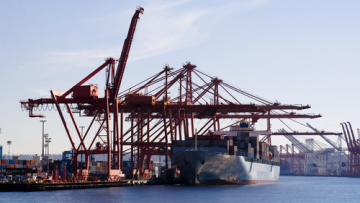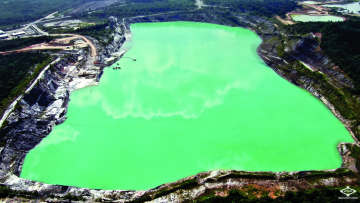Banks have not quit coal, 8 years after the Paris Agreement
Over 600 banks globally have poured $470 billion into the coal industry in the last three years. This represents a 20% decline in commercial finance for the industry since 2016, at which rate finance for coal will be phased out in 32 years. This is unacceptable. A “precipitous” drop in coal financing is needed instead. Unlike China and India, Indonesian banks are outliers in that their financing has actually increased since 2016 but, like China and India, those banks have shown virtually zero intention to exit coal.
The report includes data from January 2021 to December 2023, and was released by Urgewald along with BankTrack, Reclaim Finance, Rainforest Action Network, Friends of the Earth Japan and other NGOs. The $470 billion in lending and underwriting channelled to coal developers between 2021 and 2023 represents a decline of just 20% from 2016, which is wholly inconsistent with the climate imperatives described by the IPCC, IEA and other authorities. Retaining some chance of limiting global warming to 1.5ºC above pre-industrial levels involves the “precipitous decline” in coal use.
An urgent and decisive response by banks should start with ruling out financing of companies engaged in expansion. New coal power or mining projects have long been incompatible with a livable future and the Paris Agreement goal of limiting global warming to 1.5ºC compared to pre-industrial temperatures. The IEA’s Net Zero by 2050 goal shows no space for new coal projects in our shrinking carbon budget.
Combined with our findings in our recent Coal Havens report of banks' weak coal phase-out commitments across Asia, ‘Still Banking on Coal’ is sobering in the specific case of Indonesian banks. Their finance for coal quadrupled in a year, to $4 billion last year from $1 billion in 2022, according to Urgewald. This puts Indonesian banks’ contribution to the dirtiest fossil fuel on par with their Canadian counterparts. It shows that the wording of banks’ coal exit policies, therefore, is far from a dry technicality. Just four out of the 15 companies that received this finance were based outside of Indonesia, showing how financiers like Mandiri and BNI are being relied on to supply a domestic coal industry with the capital it needs. This may be partly explained by increasingly restrictive coal policies being applied by international lenders, which have had a significant effect on coal companies’ ability to fund their operations.
It shows that Indonesian banks’ support for regional coal developers like PLN, Indika and Adaro, as well as the significant captive coal pipeline, will burden our climate and severely degrade the natural ecosystems of a country that is home to 17% of the world’s wildlife. These banks are enabling the trampling of people’s rights and livelihoods, too. Eviction, severe disease and loss of livelihood are par for the course with coal megaprojects, as shown by examples like Adaro’s coal-powered aluminium smelter or PLN’s Java 9 & 10 expansion.
The report 'Commercial Banks Still Deep into Coal 8 Years After Paris' can be downloaded here.





